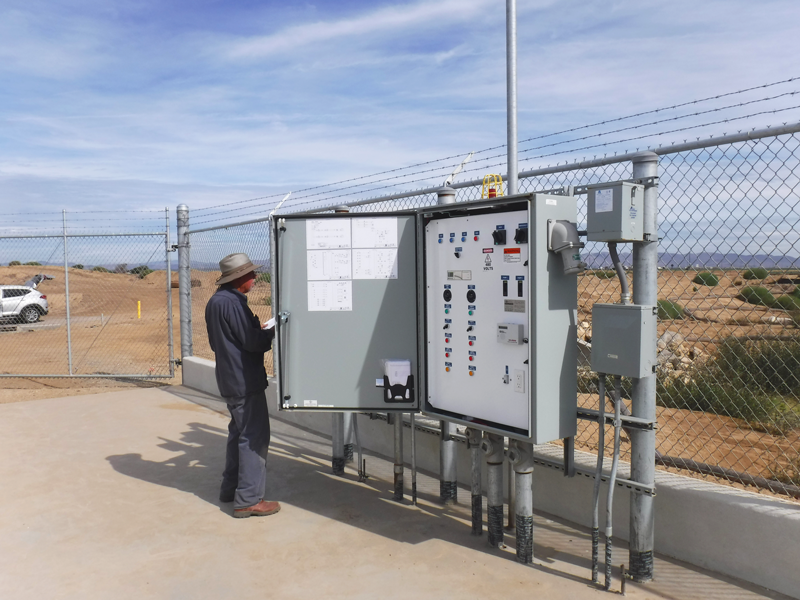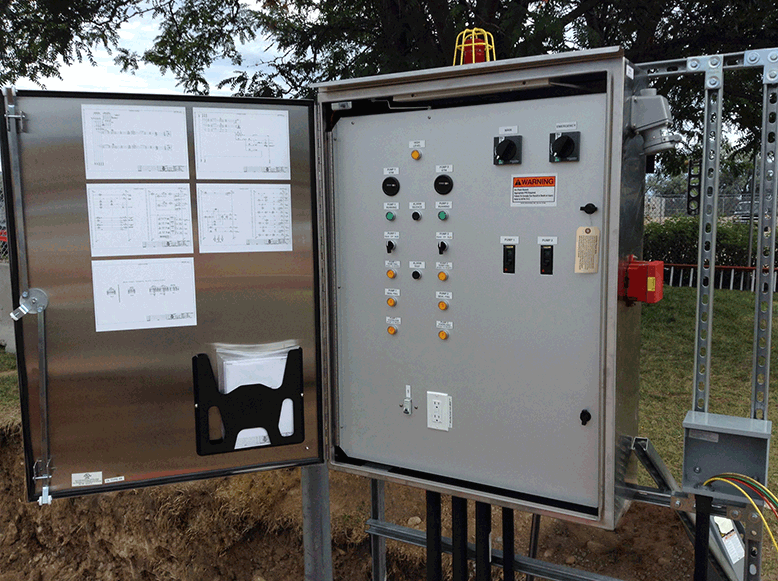
Romtec Utilities designs every aspect of new pumping system, including all of the structural, mechanical, and electrical systems. Communication devices, primarily called telemetry, are also included in our design and engineering services. Communication to and from a pumping system can dramatically affect the long-term operational success of a system, and there is no right or wrong type of telemetry to use. Choosing the best telemetry involves understanding the culture of your organization and finding a device that fits. Romtec Utilities can supply any type of control panel telemetry, and some types are more common than others. Here are some of the most common types of control panel telemetry used on our pumping systems.
Remote Annunciator Panel
Remote annunciator panels are very basic communication devices. These devices include various status labels with indicator lights to indicate various conditions in a pumping system. These conditions can be anything from “pump running” to alarm conditions. Annunciator panels can be installed in a control panel or remotely and can provide flashing or beeping indicators as specified.

Landline Based Auto Dialer
An auto dialer can transmit messages to phones or other devices that can receive phone signals. Auto dialer massages can include all types of conditions or alarm notifications as specified or required by the owner. Notably, this type of auto dialer requires access to a landline for communications, which may or may not be available at the site of the pumping system.
Cellular Based Auto Dialer
A cellular auto dialer can communicate through a cellular signal and does not require a line based connection. As with the landline type, cellular auto dialers can be programmed to multiple phone numbers. Alarms and other notification messages can be recorded to exactly describe specific conditions at a pumping system. Auto dialers can also trigger local notifications such as flashing lights or audible alarms.
Radio Modems
Radio modems can operate in areas where both landlines and cellular signals are not available. These devices utilize radio signals to send messages to remote installations or devices, but they have a limited range up to about 5 to 10 miles. Radio modems are particularly well suited to SCADA applications as they can be networked privately with multiple pumping systems or additional installations and allow two-way communications.

DSL Internet Communications
A DSL communication device requires a phone line for communication. These devices allow very reliable two-way communication allowing system controls to be operated remotely. These devices can additionally provide an internet connection for operators at the site. This can be advantageous for email communication or research while resolving an issue at the pumping system.
Cellular Modems
Cellular modems provide two-way communications without the need of a phone line, but they do require a cellular signal. These devices also can provide internet access for operators and on-site personnel. Cellular modems provide very similar communication capabilities to that of a typical “smart phone,” and they can be programmed with these software capabilities as well.
These devices represent the primary types of telemetry used by Romtec Utilities for pump stations and lift stations. Each device provides its own advantages and capabilities and depends on its location and network accessibility. It can also depend on the staff and culture of an operation department or organization for how it prefers to handle alarm events. Choosing the right control panel telemetry is an important consideration for a new pumping system. Romtec Utilities can help you get the exact device your system needs.
